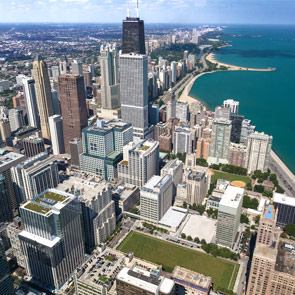
8/16/2018
Northwestern Memorial Hospital, Chicago, IL
Interdisciplinary medication disposal in a post-surgical setting
Overview
 The pharmacy department has partnered with a physician champion and others as part of an interdisciplinary project to provide a mechanism for medication disposal in a post-surgical setting. Patients are encouraged to return all unused medications to a designated medication collection kiosk for safe disposal with an emphasis on opioids. Expansion of this concept to other areas of the hospital and other hospitals in the system is currently underway.
The pharmacy department has partnered with a physician champion and others as part of an interdisciplinary project to provide a mechanism for medication disposal in a post-surgical setting. Patients are encouraged to return all unused medications to a designated medication collection kiosk for safe disposal with an emphasis on opioids. Expansion of this concept to other areas of the hospital and other hospitals in the system is currently underway.
Key Elements of Success
The deployment of the first medication collection kiosk required working closely with legal, risk, security, and clinic representatives. The group also contacted our regional DEA representative to get feedback on our process. We reviewed take-back options comprehensively per Title 21 of the Code of Federal Regulations, Part 1317 and decided a collection kiosk was the best strategy for our objective. Ongoing meetings to assess utility and expansion occur with key players on a monthly basis. Pharmacy oversees periodic emptying of the kiosk and partners with the vendor for destruction.
Impact on Patient Outcomes
Per DEA regulations, the interdisciplinary team is unable to inventory the contents of the medication kiosk. As a surrogate marker, the weight of the liners is tracked with every exchange. Approximately seven months into the project a total of 76.45 pounds has been collected from clinic patients as a result of our efforts.
Role of the Pharmacy and Pharmacists
No additional credentials or training were required for the pharmacy representatives involved in this project. A modification of the pharmacy's DEA license to become a registered collection site was required. There are additional tracking metrics that must be collected for the DEA, but tracking and witnessing of the kiosk emptying can be completed by any licensed pharmacy representative.
Lessons Learned
Overall, the implementation of the first medication collection kiosk has been successful. Initial challenges included determining the best location for installation, the downstream effects of modifying our DEA license to be a registered collector, and educating patients about the availability of this resource. The group has worked to overcome these challenges in the months since implementation. This strategy was chosen based on resources available and ease of patient access. A surgeon, who spearheaded this effort, proved to be our biggest champion. The next step of the initiative includes expansion to other areas.
Budget & Resource Allocation
The operations of this program are budgeted through the pharmacy department. The installation of a security camera near the collection kiosk was funded by the security department.
Future Goals
This work has been shared with our system-wide performance improvement office, and they are assisting with expansion efforts at our location as well as other Northwestern Medicine sites. Additionally, this project has been presented to the Illinois Surgical Quality Improvement Collaborative and is scheduled to be presented at the annual Illinois Council of Health-System Pharmacists meeting in spring of 2018.